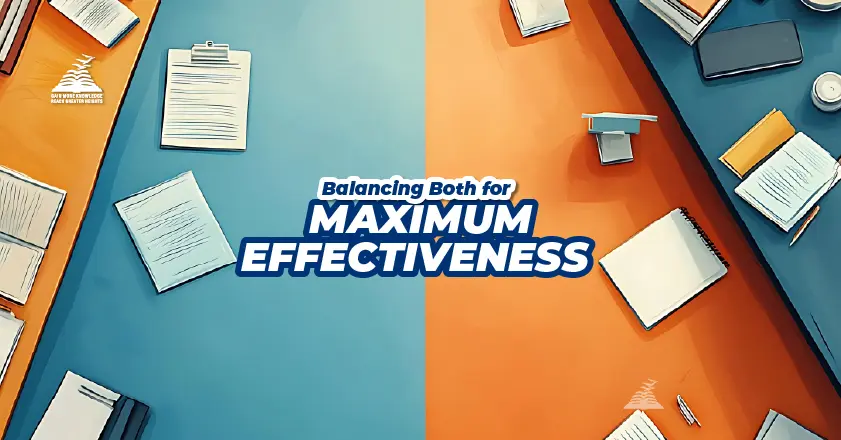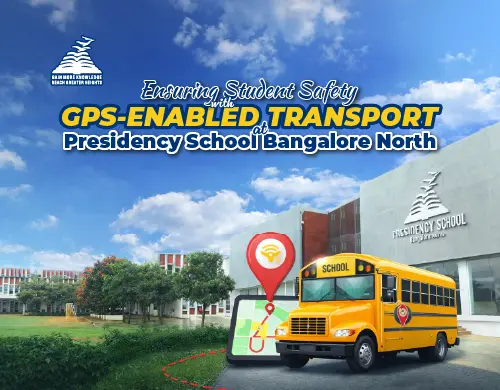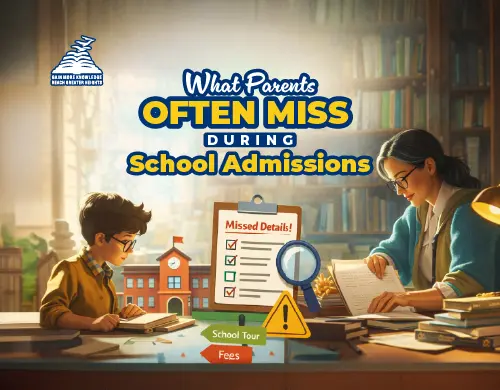Every student has their own way of learning. Some thrive in the buzz of group discussions, while others prefer the quiet focus of studying alone. Both approaches group study vs self-study has their advantages, and the best method depends on your goals, personality, and the subject matter. The key lies in understanding how each works and finding the right balance for your own success. Schools like the Top Schools in Bangalore encourage students to explore both methods, helping them build strong and flexible effective study habits that suit different situations.

1. Understanding the Two Study Approaches
Before choosing one over the other, it’s important to understand what defines each method. Studying in groups involves collaboration sharing ideas, solving problems together, and learning through discussion. It is dynamic, interactive, and perfect for subjects that require debate or explanation. On the other hand, studying alone focuses on personal concentration, self-discipline, and independence. It allows you to move at your own pace without distractions. Both methods serve distinct purposes in the learning process, and the smartest students learn to switch between them as needed.
2. Benefits of Group Study
One of the biggest benefits of group study is the exchange of knowledge. When students come together, they share different perspectives, learning strategies, and problem-solving techniques. A question that puzzles one student may be easily explained by another, making learning faster and more engaging. Group study also builds confidence explaining concepts to others reinforces your own understanding. Moreover, collaborative environments foster teamwork and communication skills, traits that are essential beyond academics. Teachers in good CBSE schools in Bangalore often encourage small group study sessions to build a sense of camaraderie and mutual learning among students.
3. Drawbacks of Group Study
While group learning has many advantages, it is not always the perfect solution. Without clear structure, group study can become distracting. Conversations can easily drift away from the topic, leading to wasted time. Sometimes, a few active participants dominate the discussion, leaving quieter students behind. Coordinating schedules with others can also be challenging. To make the most of group study, students need discipline, time management, and shared goals. Many top 10 CBSE schools in Bangalore guide students on how to create productive group environments that encourage focus and collaboration.
4. Advantages of Individual Preparation
When it comes to concentration and flexibility, individual preparation often wins. Studying alone allows students to learn at their own pace, tailor their methods, and focus deeply without interruptions. You can decide how long to study, which topics to prioritize, and when to take breaks. This autonomy fosters self-discipline and responsibility qualities essential for higher education and beyond. Many students at famous schools in Bangalore prefer solo study sessions during exams for this very reason it helps them retain focus, review thoroughly, and revise efficiently.
5. Limitations of Studying Alone
However, studying alone has its downsides too. Without peers to discuss doubts or challenge ideas, learning can sometimes become monotonous or one-dimensional. Students might also overlook errors or misunderstand concepts due to the absence of feedback. Additionally, prolonged isolation can reduce motivation. While independent learning promotes self-reliance, too much of it can limit exposure to new perspectives. That is why many educators at the best high schools in Bangalore recommend blending self-study with occasional group interactions for a more rounded academic experience.
6. Choosing the Right Approach for Your Learning Style
No two learners are alike. Some students are energized by social interaction and thrive when exchanging ideas, while others perform better in calm, quiet environments. Understanding your personality and learning preferences is key. If you find energy and motivation in group discussions, studying in groups might be ideal. If you prefer reflection and self-paced learning, studying alone will suit you better. Schools such as the Top Schools in Bangalore help students identify their learning styles early, ensuring they make the most of their study time and environment.
7. Balancing Both for Maximum Effectiveness
The truth is, neither method is superior it is the combination that creates the most effective results. Start by studying alone to build understanding and identify weak areas. Then, join a group study session to discuss those topics, gain different viewpoints, and reinforce your learning. This dual strategy promotes both comprehension and communication skills. Many educators at middle schools in Bangalore observe that students who combine solo and group study methods often perform better in exams, as they balance focus with collaboration.
8. Tips for Productive Group Study Sessions
To ensure group sessions are effective, set clear goals before you begin. Assign topics or questions to each participant so everyone contributes equally. Keep discussions structured use a timer if necessary and summarize key takeaways at the end of each meeting. Avoid turning the session into a casual chat. The most effective studying methods involve accountability and cooperation. Group leaders or teachers in best CBSE schools in Bangalore often advise students to keep their groups small (3–5 members) to maintain focus and encourage active participation.
9. How to Stay Disciplined During Individual Study
Studying alone requires commitment and organization. Create a routine and stick to it. Set a specific time each day for studying and minimize distractions by turning off notifications and keeping your workspace clutter-free. Use tools like planners or study apps to track progress. Reward yourself for achieving daily goals small wins keep motivation high. Remember, good study methods are built on consistency. When students at good CBSE schools in Bangalore practice discipline during solo sessions, they develop lifelong habits of independence and responsibility.
10. Finding What Works Best for You
Ultimately, the debate between group study vs self-study does not have a one-size-fits-all answer. The best approach depends on your subject, goals, and mindset. Analytical subjects like math may benefit from solo problem-solving, while discussion-based subjects like literature or history can thrive in groups. What matters most is balance understanding when to collaborate and when to focus inward. The most successful students at schools in Bangalore know how to adapt, blending both techniques to achieve consistent progress and deeper learning.
Presidency School Bangalore North – Encouraging Smart, Balanced Learning
At the Presidency School Bangalore North, students are encouraged to explore both learning methods for students collaborative group discussions and independent study sessions. Recognized among the top CBSE schools in Bangalore, the group fosters an environment where teamwork meets self-discipline. Through project-based learning, peer mentoring, and personalized academic support, students develop a holistic approach to education.
Whether working in teams or focusing individually, learners are guided to discover what works best for them. This flexible, student-centered approach has made Presidency School Bangalore North one of the best schools in Bangalore, where academic excellence, creativity, and collaboration come together to shape confident, lifelong learners.
Conclusion
Both group study and self-study offer distinct strengths and challenges for students seeking effective learning. Group study provides motivation, diverse perspectives, and improves communication skills, while self-study enables deep concentration, personalized pacing, and self-reliance. The most successful students balance both approaches choosing group collaboration for active discussion and problem-solving, and individual sessions for focused review and understanding. By adapting study strategies to their own needs and subjects, learners maximize their academic potential and develop flexible habits for lifelong success.
While mind maps are great for big-picture understanding, flashcards for students are ideal for memorizing facts, definitions, and formulas. Flashcards are small cards containing a question on one side and the answer on the other. They engage active recall a process where the brain retrieves information from memory, strengthening it each time. This makes flashcards perfect for learning vocabulary, chemical symbols, historical dates, or mathematical formulas. They’re portable, quick to use, and highly effective when reviewed regularly.
Designing Smart Flashcards
The secret to effective flashcards lies in simplicity. Keep each card focused on one concept or question this avoids confusion and enhances clarity. For instance, one card might ask, “What is the capital of France?” while the other side simply states “Paris.” Using colour coding for different subjects and adding visual cues or doodles can make the cards even more memorable. Students at top rated schools in Bangalore often create digital flashcards using apps like Anki or Quizlet, making revision easier anywhere, anytime.
Using Spaced Repetition for Long-Term Memory
One of the most powerful ways to make flashcards work long-term is by using spaced repetition a learning technique that involves reviewing cards at gradually increasing intervals. For example, a card you review today might be revisited in two days, then a week later, then a month later. This scientifically proven strategy strengthens long-term memory and prevents forgetting. Many students at best CBSE schools in Bangalore East use this technique during board exam preparation to retain key information without stress.
Combining Mind Maps and Flashcards
The real magic happens when you combine both methods. Use mind maps in education to get an overview of a topic seeing how ideas connect and then use flashcards to memorize specific details or definitions. For instance, if you are studying “The Human Digestive System,” your mind map can illustrate the process, while your flashcards can help you memorize the functions of each organ. This combination ensures that learning is both deep and detailed. It is an approach promoted by teachers at the top 10 schools in Bangalore, where innovation meets academic excellence.
Digital Tools for Smarter Learning
In today’s tech-driven world, students have access to countless digital tools that enhance their study habits. Apps like “MindMeister”, “Quizlet”, and “Anki” make it easy to create, store, and share mind maps and flashcards. These tools allow students to study on the go and even collaborate with classmates. The use of such effective learning strategies in the classroom makes studying more dynamic and adaptable. Many best play schools in Bangalore introduce early visual learning through digital storytelling and interactive boards to build these skills from the foundational years.
Turning Study Tools into a Habit
Using mind maps or flashcards once will not make a lasting difference consistency is key. When students make these tools part of their regular routine, they not only improve retention but also become more confident learners. Over time, these habits reduce exam anxiety and boost self-discipline. The study techniques for students taught in leading institutions like Top Schools in Bangalore focus on creating lifelong learning habits rather than short-term memorization. With steady use, students learn to balance understanding with recall a skill essential for academic and professional success.




